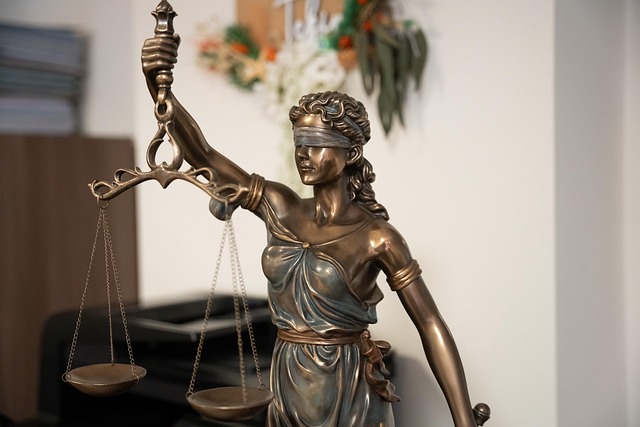Litigation Risk Management is vital for mitigating civil legal risks, particularly libel cases in civil courts, which have surged in the digital age due to rapid information spread. Early case assessment and strategic communication management are key to efficient resource allocation and successful outcomes. Studying prominent libel case examples reveals effective defense strategies centered on fact-checking, clear communication, and understanding legal precedents, empowering entities to safeguard against baseless allegations and enhance overall litigation risk management.
Litigation Risk Management is an essential strategy for organizations and individuals alike, especially in today’s litigious climate. This article explores the intricate world of civil cases, focusing on libel as a prevalent legal challenge. We present a comprehensive guide to understanding litigation risk, from defining strategies to navigating complex libel cases. By examining real-world libel case examples in civil court, we offer valuable insights into effective risk mitigation techniques and highlight successful defense strategies.
- Understanding Litigation Risk Management: Strategies for Civil Cases
- Libel as a Common Legal Battle: Protecting Your Reputation
- Case Studies: Notable Libel Cases in Recent Civil Courts
- Effective Risk Mitigation Techniques to Avoid Litigious Pitfalls
- Building a Strong Defense: Lessons from Past Libel Case Outcomes
Understanding Litigation Risk Management: Strategies for Civil Cases

Litigation Risk Management involves a strategic approach to mitigate potential legal risks, especially in civil cases. It’s about recognizing that disputes are inevitable in our society, and having robust strategies in place can help organizations and individuals navigate these challenges effectively. One of the key aspects is understanding the nature of claims, such as libel, which can significantly impact an entity’s reputation and financial health. For instance, a thorough examination of libel case examples in civil courts reveals that strategic responses, including swift legal action or robust defense strategies, can greatly influence outcomes.
Effective risk management includes early case assessment, identifying potential defendants or plaintiffs, and evaluating the strength of claims. This proactive approach allows for better resource allocation and prepares parties for possible jury trials. Furthermore, it’s beneficial to consider the broader context in which disputes arise; whether they involve philanthropic or political communities, understanding community dynamics can provide valuable insights into potential sources of friction and ways to foster a culture of dispute resolution.
Libel as a Common Legal Battle: Protecting Your Reputation

Libel is a common legal battle that can significantly impact an individual or organization’s reputation. In today’s digital age, where information spreads rapidly, libel cases in civil courts have become increasingly prevalent. These high-stakes cases often involve public figures, business leaders, and even philanthropic and political communities across the country. A successful libel claim can lead to substantial financial damages and lasting harm to one’s image.
For instance, consider a scenario where a renowned entrepreneur makes false accusations in a public forum, damaging the reputation of a competing company. This could result in a civil suit with far-reaching consequences. To protect against libel, individuals and entities must exercise caution when expressing opinions or sharing information publicly. It’s essential to ensure that statements are factually accurate and backed by credible evidence, especially when discussing matters that could attract widespread attention, such as business disputes or public debates.
Case Studies: Notable Libel Cases in Recent Civil Courts

In recent years, several libel cases in civil courts have shed light on the intricate dynamics of risk management for both corporate and individual clients. These high-profile cases serve as valuable case studies, demonstrating the importance of robust legal strategies in defending against allegations that can significantly impact reputation and financial standing. One notable example involves a prominent corporation accused of making false statements about a competitor’s products, ultimately leading to a complete dismissal of all charges through a well-crafted defense strategy.
The successful outcomes in these libel cases highlight the value of proactive risk management. Skilled legal teams have been instrumental in securing winning challenging defense verdicts, defending clients’ rights, and ensuring their businesses remain intact despite the initial turmoil. These case studies underscore the need for organizations to invest in comprehensive litigation risk management practices, enabling them to navigate complex legal landscapes and protect their interests effectively.
Effective Risk Mitigation Techniques to Avoid Litigious Pitfalls

Effective risk mitigation techniques are paramount to avoid litigious pitfalls, especially in the complex landscape of civil courts. One powerful strategy involves a thorough understanding of libel case examples. By studying real-world scenarios, businesses and individuals can identify common pitfalls and develop proactive measures. For instance, meticulous fact-checking and verification processes can significantly reduce the risk of defaming individuals or entities, thereby steering clear of costly and damaging libel cases.
Moreover, achieving extraordinary results in legal disputes often hinges on strategic communication management. This includes prompt responses to allegations, transparent documentation, and consistent messaging throughout all stages of the investigative and enforcement process. Winning challenging defense verdicts is more attainable when organizations and individuals are prepared with robust evidence, sound legal arguments, and a clear understanding of their rights and responsibilities, thereby minimizing exposure to litigation risks.
Building a Strong Defense: Lessons from Past Libel Case Outcomes

In navigating litigation risk management, one of the most powerful tools is learning from past libel case outcomes in civil courts. A review of notable cases reveals that robust defense strategies often hinge on clear communication, thorough fact-finding, and a deep understanding of legal precedents. For instance, successful defendants have employed strategies such as challenging the validity of evidence, exposing inconsistencies in claims, and demonstrating the absence of malice or reckless disregard for truth—essential elements in defamation cases.
Studying these libel case examples underscores the importance of preparing for jury trials by presenting a compelling narrative that resonates with fact-finders. An unprecedented track record of achieving extraordinary results in similar cases can significantly bolster a defendant’s position, demonstrating not just legal acumen but also an ability to navigate complex situations effectively. This approach ensures that organizations and individuals alike can better protect themselves against baseless allegations, thereby enhancing their overall litigation risk management capabilities.
Litigation risk management is an indispensable skill for navigating civil cases, especially those involving libel. By understanding these risks and employing effective strategies, individuals and organizations can protect their reputations and avoid costly legal battles. The case studies presented offer valuable insights into real-world scenarios, while the discussion on risk mitigation techniques provides practical tools to defend against libel claims. Ultimately, staying informed and proactive in litigation risk management is key to ensuring positive outcomes in civil courts, as demonstrated by successful defense strategies in notable libel cases.






